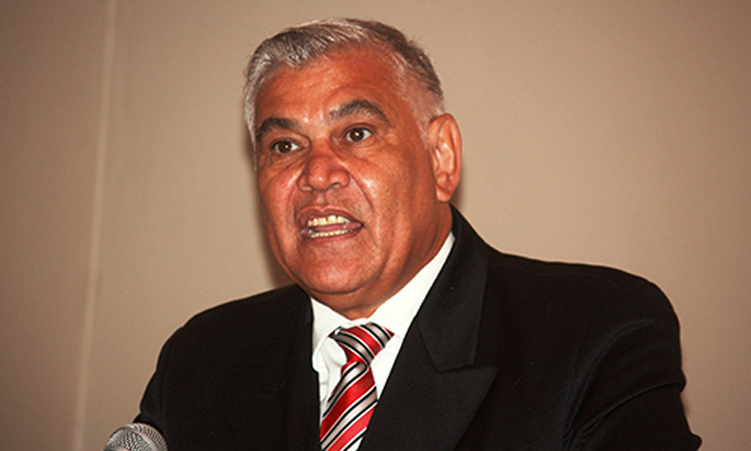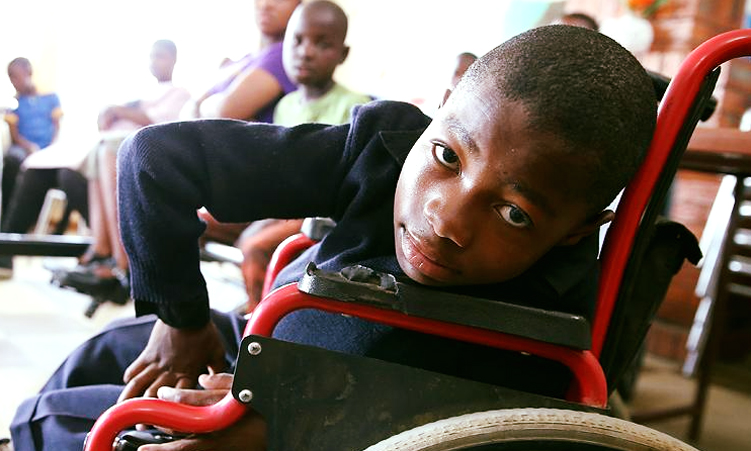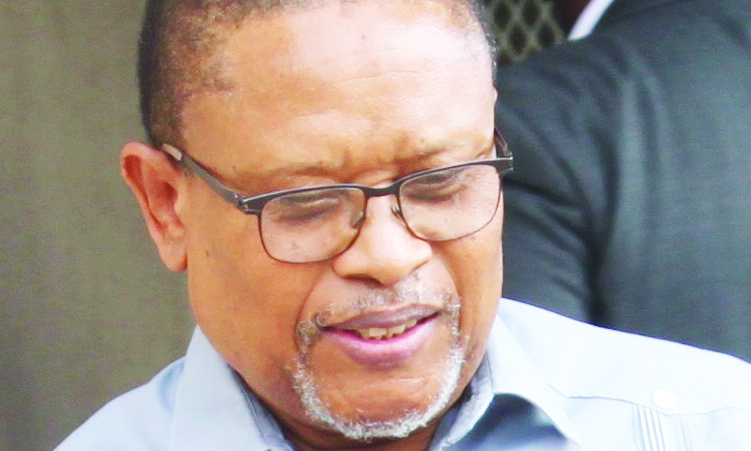THE HAGUE – Former Liberian President Charles Taylor boycotted and his court-appointed lawyer walked out of the courtroom yesterday in a dramatic start to the landmark first international war crimes trial of a former African leader.
Lawyer Karim Khan said Taylor had fired him and wanted to act as his own defence attorney. Khan walked out even though Presiding Judge Julia Sebutinde of Uganda repeatedly directed him to continue to represent Taylor, if only for the opening day, saying Taylor’s objections that he did not believe he could receive a fair trial could be dealt with later.Apologising and defying threats of contempt of court, Khan gathered his defence files and left the room, ignoring increasingly testy instructions from the judges to sit down.The court ordered the trial to continue, and Chief Prosecutor Stephen Rapp began his opening statement.Taylor, 59, who has pleaded not guilty to 11 charges of war crimes and crimes against humanity, faces a maximum sentence of life imprisonment if convicted.The prosecution had been scheduled to make a four-hour opening statement yesterday, after which the case was due to adjourn for three weeks.It was unclear who would be sitting on the defence bench when it resumes June 25.The trial was expected to last 18 months.Taylor was not in court yesterday, but in a letter to the court read earlier by Khan, he claimed he had been prevented from seeing his preferred lawyer and that his one court-appointed attorney was heavily outgunned by the prosecution team of nine.”It is with great regret that I must decline to attend any further proceedings in this case,” Taylor said.”At one time I had confidence in this court’s ability to dispense justice.Over time, it has become clear that confidence has been misplaced,” Taylor’s statement said.”I will not receive a fair trial.”Taylor’s supporters had complained that the defence team has not had enough time to prepare.Rapp disputed Taylor’s assertion that he lacked an adequate defence, noting that Taylor had been assigned a lawyer, assistant attorneys, a special investigator and court funds.”Everything that can be done is being done,” Rapp told the court.Sebutinde, the presiding judge, repeatedly interrupted Khan’s reading of Taylor’s letter, demanding a to-the-point explanation for Taylor’s absence.”We are not interested in political speeches,” she told the lawyer.The trial had been expected to be difficult and complex even before yesterday’s developments raised more questions about how the process would work.Despite the difficulties, though, the trial has been hailed as a watershed for war-torn western Africa and its people.The atrocities in Sierra Leone’s 1991-2002 civil war are well-documented; fighters – often children drugged and turned into merciless killers at brutal rebel training camps -killed thousands of men, women and children and mutilated more by hacking off hands and limbs with axes and machetes.Women were raped and abducted to become sex slaves.Nampa-APKhan walked out even though Presiding Judge Julia Sebutinde of Uganda repeatedly directed him to continue to represent Taylor, if only for the opening day, saying Taylor’s objections that he did not believe he could receive a fair trial could be dealt with later.Apologising and defying threats of contempt of court, Khan gathered his defence files and left the room, ignoring increasingly testy instructions from the judges to sit down.The court ordered the trial to continue, and Chief Prosecutor Stephen Rapp began his opening statement.Taylor, 59, who has pleaded not guilty to 11 charges of war crimes and crimes against humanity, faces a maximum sentence of life imprisonment if convicted.The prosecution had been scheduled to make a four-hour opening statement yesterday, after which the case was due to adjourn for three weeks.It was unclear who would be sitting on the defence bench when it resumes June 25.The trial was expected to last 18 months.Taylor was not in court yesterday, but in a letter to the court read earlier by Khan, he claimed he had been prevented from seeing his preferred lawyer and that his one court-appointed attorney was heavily outgunned by the prosecution team of nine.”It is with great regret that I must decline to attend any further proceedings in this case,” Taylor said.”At one time I had confidence in this court’s ability to dispense justice.Over time, it has become clear that confidence has been misplaced,” Taylor’s statement said.”I will not receive a fair trial.”Taylor’s supporters had complained that the defence team has not had enough time to prepare.Rapp disputed Taylor’s assertion that he lacked an adequate defence, noting that Taylor had been assigned a lawyer, assistant attorneys, a special investigator and court funds.”Everything that can be done is being done,” Rapp told the court.Sebutinde, the presiding judge, repeatedly interrupted Khan’s reading of Taylor’s letter, demanding a to-the-point explanation for Taylor’s absence.”We are not interested in political speeches,” she told the lawyer.The trial had been expected to be difficult and complex even before yesterday’s developments raised more questions about how the process would work.Despite the difficulties, though, the trial has been hailed as a watershed for war-torn western Africa and its people.The atrocities in Sierra Leone’s 1991-2002 civil war are well-documented; fighters – often children drugged and turned into merciless killers at brutal rebel training camps -killed thousands of men, women and children and mutilated more by hacking off hands and limbs with axes and machetes.Women were raped and abducted to become sex slaves.Nampa-AP
Stay informed with The Namibian – your source for credible journalism. Get in-depth reporting and opinions for
only N$85 a month. Invest in journalism, invest in democracy –
Subscribe Now!






